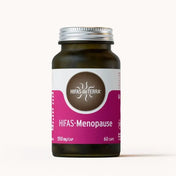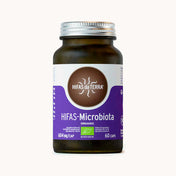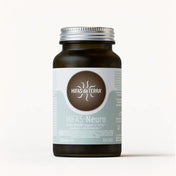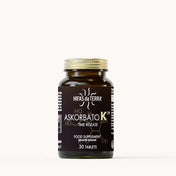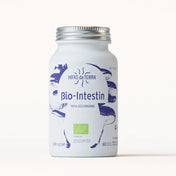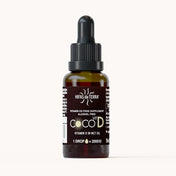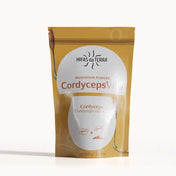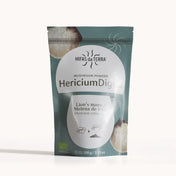Posted on 06/14/2023.
Author: Hifas Editorial Team
Index
Although in the USA there is talk of Sibo For years, in Europe its knowledge is still minority and, therefore, its management and treatment still generates doubts among professionals.
According to many specialists, patients come to disoriented consultation because the tests are normal but they claim not to feel good. At stomach discomfort They usually accompany you Episodes of sadness and tiredness. In women they can also occur hormonal alterations.
What is Sibo or bacterial overgrowth?
He Sibo or bacterial overgrowth It occurs when gastrointestinal tract bacteria excessively colonize the thin intestine, where there should normally be less bacteria. This can occur due to a malfunction of the valves that regulate the flow of food and bacteria through the digestive system, or by other disorders that affect intestinal motility.
Bacterial overgrowth can interfere with adequate digestion and nutrient absorption, which leads to a series of unpleasant symptoms.
How to know if I have bacterial overgrowth?
Before Sibo diagnosis Some people claim to feel heavy after meals, especially with Digestion problems, abdominal swelling and flatulence.
However, the brain-nastino connection It also has an impact on the SIBO and its treatment as a situation of Intestinal dysbiosis It has also been related to Headaches, hormonal problems and even dermatological alterations... we are a whole and that all mismanted through the Microbiota It manifests itself in disorders through various organs.
Still we can list the following Common symptoms in Sibo:
- Abdominal distension
- Abdominal pain or discomfort
- Excessive flatulence
- Diarrhea or constipation
- Fatigue and weakness
- Unintentional weight loss
- Nutritional deficiencies
Bacterial overgrows can also be related to a Excessive tiredness, Rosacea, generalized pain, tendency to sadness… In particular, the following symptoms of Sibo can be pointed out according to the subtypes of bacteria that have increased in the digestive intestine:
- Hydrogen sibo: Abdominal swelling, gases, poor tolerance to food, diarrhea and yellowish feces.
- Sibo de Metano (also known as Simo): It is characterized by a slower transit, floating feces ... and often implies weight gain.
- Hydrogen sulfide sibo: This type of sibo manifests itself with more extra -managed symptoms such as excess Heat, migraines, sweat, etc. It is also characterized by intestinal alteration (diarrhea or constipation) and by having Fétidas flatulence.
Why of the Sibo
A sedentary lifestyle and one Poor feeding In nutrients it can be considered a Risk factor for the development of Intestinal dysbiosis.
Even in the alteration of the microbiota, the effects of the Polymedication, if it has been fed with breastfeeding, type of childbirth and hormonal alterations Like endometriosis.
There is also talk of a Organic predisposition to a Sibo especially for taking certain drugs and have immune alterations. Also, the senility (As of 70-75 years, alterations in the intestinal bacterial flora can already occur) and polymedication do not contribute to the balance of the intestinal microbiota.
Sibo test and other diagnostic tests
- The objective measurement in clinic is a duodenal aspirate culture via endoscopy. However, it is not infallible and is annoying for patients.
- Another recurring test is the breath test from a glucose or lactulous substrate. This is usually more common.
How to eliminate Sibo naturally?
Low diet in Fodmaps
In general, a Low fermentable carbohydrate diet (Fodmap).
This type of foodmap food (oligosaccharides, disaccharides, monosaccharides and fermentable polyles) They can easily ferment in the intestine, which can worsen the symptoms of Sibo.
Orientative table with rich foods or moderate content in Fodmaps:
- Dairy with lactose
- Cereals: Wheat, rye, barley….
- Legumes: Jewish (beans), chickpeas, lentils ...
- Fruits that have high content of fodmaps nectarina, watermelon, blackberry, apple, pear, plum, mango, peach….
- Vegetables: cabbage, pumpkin, asparagus, artichoke ... ..
A low fodmap diet It can reduce bacterial load and relieve symptoms. However, it is important to work with a health professional or specialized dietitian to make sure to obtain adequate nutrition while this diet is followed. In fact, some professionals point out that a strict or sustained Fodmaps diet can be harmful to intestinal disbiosis symptoms.
Hifas Sibo study
Recently, a prospective, randomized and unioncentric studio has been carried out with patients with SII (irriable intestine syndrome) positive in Sibo from the Andalusian Unit of Digestive Functional Disorder (TFD) in order to improve the quality of life of patients.
The control group carried out a low diet in Fodmaps.
The intervention group combined the use of supplements from specific strains of Reishi and León hair, as well as Shiitake and Pleurotus.
This study collected analytical data and nutritional profile, Bio-Psychic-Psychos Complete Nutritional Valuation Test.
Antibiotics
Antibiotics are a commonly used option to treat SIBO. However, it is important to keep in mind that antibiotics can affect the beneficial intestinal flora, so it is essential to use them under the supervision of a doctor.
Probiotics
Although it may seem contradictory, in some cases, probiotics may be beneficial to treat Sibo. When choosing adequate probiotics, you can Restore beneficial bacteria in the intestine, helping to balance the microbiota and reduce the excessive growth of unwanted bacteria. However, not all probiotics are appropriate for Sibo, so it is important to obtain specific recommendations from a health professional.
Changes in lifestyle
In addition to the aforementioned treatments, making changes in lifestyle can help control sibo and prevent their recurrence.
This can reduce stress and Improve sleep quality. In this sense, exercise regularly and avoid excessive consumption of alcohol and tobacco are also measures that can improve intestinal health.
Summary: Sibo treatment requires important dietary changes and other measures to recover intestinal eubiosis
Sibo is already a very present problem in society that, with an adequate approach, can be treated effectively. Proper medical supervision and carry out changes in lifestyle are fundamental to recover intestinal health and relieve Sibo symptoms.
If you are experiencing symptoms related to SIBO, we recommend that you consult a gastroenterology specialist and expert nutritionists who will offer you a precise diagnosis and a treatment plan appropriate to your individual needs.


